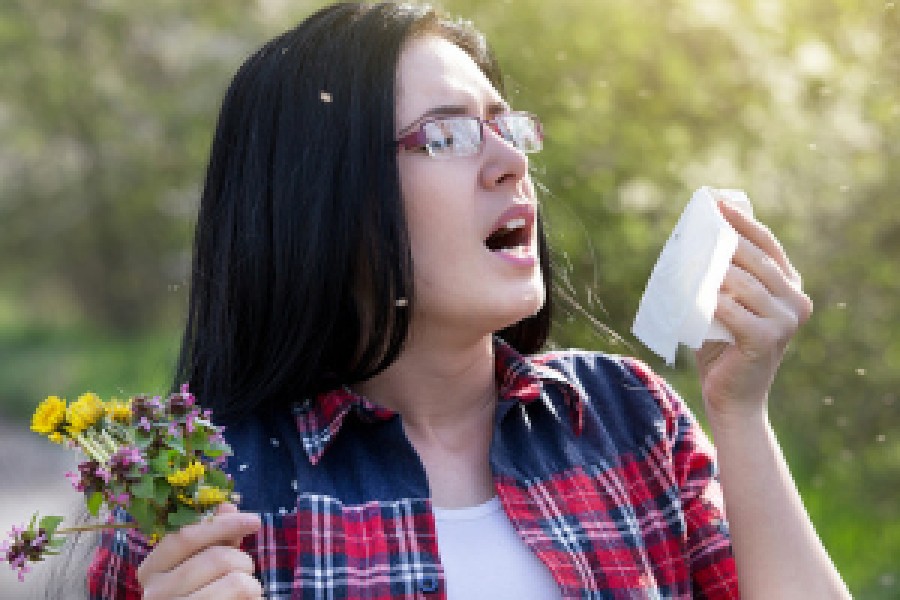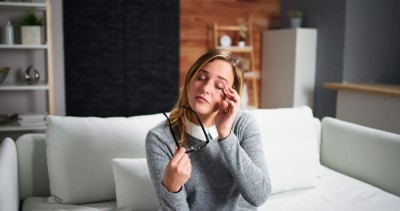Free shipping for orders over 39.00€
Allergic rhinitis- Hay Fever and how to avoid it!

Spring is here and, while most are happy with nature’ s blossoming, many are preparing for the annual "battle" with allergic rhinitis, the inflammation that occurs in the nose, when exposed to an irritating factor called allergen. This excessive reaction of the body against an, otherwise, harmless substance, agitates the immune system and creates a series of symptoms that afflict the patient, either seasonally, or throughout the year.
Allergic rhinitis occurs when the patient's cells secrete histamine, the chemical that serves to protect the body when it comes into contact with an allergen. The most common allergens are the pollen, grass, fungi, mites, dust, animal hair, bird feathers, animal saliva.
Allergic rhinitis afflicts a large part of the population (about 10 to 30%), affects men as well as women and occurs not only in adults but also in children. Allergic rhinitis is associated with heredity, and can be combined with other diseases, other than allergic diseases, such as otitis, sinusitis and nasal polyps.
Symptoms of allergic rhinitis are different in each case. Depending on the severity of the clinical picture, a patient may experience all or some of the following symptoms which are:
Sneezes: multiple and continuous sneezes, usually in the morning or when the patient is in places with a high concentration of the allergen that affects him (gardens and parks or warehouses and gyms with pollen or mites respectively).
Runny nose: the nose secretes in large quantity, a transparent – like water - mucus. It can be combined with sneezing, but it can also appear on its own.
Nasal congestion: this is the symptom of a stuffy nose. Congestion affects the olfaction of the patient, reducing or altering it, thus affecting the taste, as these sensations are interrelated. In some patients it also affects hearing, causing the sensation of stuffy ears.
Itching: in the nose, pharynx, ears.
Tearful eyes: combined with itching.
Retronasal catarrh: it is the unpleasant sensation where the mucus that is in the nose does not end up in the nostril but ends up back towards the pharynx.
Cough: it is caused by the retronasal catarrh.
Snoring/ breathing through the mouth: caused by nasal congestion.
Nosebleed: a small loss of blood from the nose can be caused due to the strong blowing from the patient, while trying to expel the mucus.
Dark circles and swelling under the eyes: inflammation in the nose affects the venous circulation of the eyes and this creates dark circles or swelling.
Headache and fatigue: allergic rhinitis makes the daily routine of the patient's life difficult and affects the quality of sleep, resulting in reduced performance in daily functions and work.
The above symptoms appear as soon as the patient comes into contact with an allergen. Some of them relate to cases where exposure lasts for a long time.
Diagnosis and treatment
Existence of allergic rhinitis will be confirmed by the otolaryngologist with an endoscopic examination of the nose, through which the doctor will get the real picture of the area where the problem is detected. Then, the allergist performs skin tests of Tincture, by placing on the skin of the patient various substances, during which the reaction of the organism is assessed (a small red blister will appear when the patient gets the substance to which he is allergic). Finally, specialized blood tests are performed to confirm the existence or non-allergy to specific allergens.
Unfortunately, there is no cure to the cause of allergic rhinitis - which is the hypersensitivity of the body to allergens – but only treatment of symptoms. Therefore, in order to treat allergic rhinitis, the patient is advised to avoid, as far as possible, contact with the allergens that trigger it. Then the symptoms are treated with:
Nasal washes with saline and Supreme solutions.
Antihistamines: they are the most widely used pills or spray, which treat runny nose, sneezing and itching.
Steroid nasal spray: these sprays are used to control nose inflammation, nasal congestion, while helping treat the rest of the symptoms.
Decongestants nasal spray: the decongestants constrict the nose vessels, directly relieving nasal congestion. Due to the effect on the vessels, their multi-day use is not recommended since, three days after the use, the action is weakened, and overdose (for the drug to have an effect) can cause medicinal rhinitis.
In severe cases, the doctor may suggest immunotherapy, which essentially changes the way the body treats the allergen, however this particular treatment, in addition to being time consuming, does not comply on all cases of allergic rhinitis.






